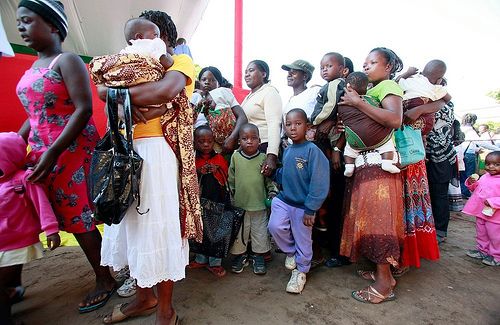I’ve always had a fascination with old cemeteries. Call it a morbid fascination because I guess that’s exactly what it is.
I grew up in Southern Maryland, a rural part of a very old state. Some historians put the first European explorers here in the 1400s with official colonies here in the 1600s. That’s a lot of history. That’s a lot of families and generations coming and going. And it’s the going that piques my curiosity.
In the cemeteries I’ve explored, the gravestones often go back to the 1700s when healthcare was primitive, at best. It wasn’t uncommon to uncover a family plot that included Ma, Pa, and baby after baby after baby. Children seemed especially vulnerable, based on the gravestone dates, from birth to two years old. And there was a lot to make them vulnerable. It wasn’t unthinkable to die at a young age from tuberculosis or scarlet fever or even influenza, or simply “the flu.”
I always wondered if the loss of a baby back then was as traumatic as it is today, but how could it not be? Even if the chances of surviving childhood were much slimmer then, how could any mother, or father for that matter, not mourn the loss of a young child? Not feel the devastation?
We’ve come a long way in 300 or so years and the improvements in healthcare have only accelerated over the past few generations. Growing up, my mother told me stories of FDR and how he suffered the effects of polio. She showed me pictures of children in iron lungs who remained hospitalized for polio treatment for over a year. And it was all in this country not that long ago. In my mother’s generation, a vaccine was developed. In my generation, an oral vaccine was commonplace. And in my son’s generation, he’ll probably never even think about polio.
Which is as it should be.
We have come to a place where we have eradicated so many deadly diseases that most people don’t give them a second thought. We’re so far removed from any sort of endemic diseases in the United States that many parents actually choose not to vaccinate their children.
But the fact remains that one child dies every 20 seconds of every day from a vaccine-preventable disease. That means that 8 children have died from one of these diseases while you’re reading this. I’m talking measles and pneumonia and, yes, even polio. It’s not in this country but it still exists. And if every child had a polio vaccine, we could eradicate polio in 50 years. Meaning gone forever.
But how? How do we reach the remote areas of Pakistan and the rural villages of Ghana? How do we educate the people and the culture? How do we create the mechanisms to distribute vaccines far and wide?
We start at the top. With 191 countries.
In 1989, the United Nations created the Convention on the Rights of the Child, a human rights treaty ratified by 191 countries. The treaty states that all children be given the opportunity to “develop physically, morally, spiritually and socially in a healthy and normal manner.” By ratifying the treaty, these countries are now bound by international law to report on their progress in granting this opportunity to every child.
That opportunity includes recognizing “the right of the child to the enjoyment of the highest attainable standard of health and to facilities for the treatment of illness and rehabilitation of health.” It’s not government mandated health care. It’s accepting that every child has rights. The right to health, the right to happiness, the right to enjoy being a child: playing in the mud, being a messy eater, celebrating the first day of school, squealing with delight at birthday presents
It’s a start. It’s a chance for change. It’s a shot at life.
This post is part of the Shot@Life Summer Blog Carnival. Shot@Life is a campaign of the United Nations Foundation to protect children worldwide by providing life-saving vaccines where they are most needed. I wholeheartedly support this campaign.




I really liked this post. I started reading it b/c I too like cemeteries. They are peaceful and tell us a good deal about our history. As I read on I liked how you tied in the Shot@Life campaign. The info about the UN treaty for right of children was interesting too. I was not aware of it but I wonder how many countries that are part of the UN are not following that treaty…
You want to know something embarrassing? Only two countries. Sudan and the United States. Yes, I said the U.S. Apparently, there is political and religious opposition to this treaty and I don’t quite understand it, even as a conservative.
I love this post and I love this cause. I’m also looking forward to participating to make a difference!
I wish more people felt like you. It’s a no-brainer for me!
What a great cause. Honestly. It’s so sad to think of how many people die every year from things that we have vaccinations for. For things that exist, like mosquito nets, and clean drinking water. Things we take for granted because we’ve never known life without them.
Exactly. People take it for granted because it’s not in front of our faces. To think we have the luxury of choice…